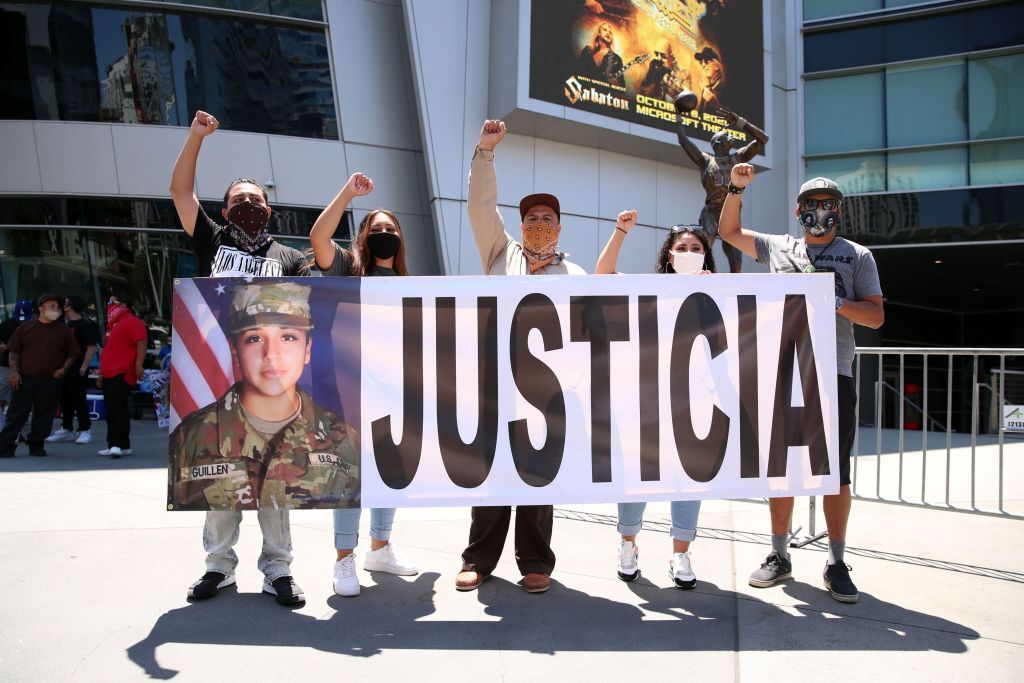Advocates warn that rhetoric glorifying aggression can have real consequences for survivors of sexual violence.
Secretary of Defense Pete Hegseth vowed late last month to implement the new rules of engagement while addressing America’s senior military leaders, saying, “No more walking on eggshells.” The protocol handling allegations of hazing and other types of abuse will be overhauled.
Hesgeth, a member of a Christian nationalist church that endorses patriarchy and theocracy, went on to say that the records of “tough” leaders with past infractions will be expunged.
Working in the domestic violence prevention field, it was hard not to hear this as a call to sexual harassment and violence, both within the ranks and in combat.

Rape is deeply rooted in power and control, and Hesgeth’s calls for violent masculinity as policy only point to the pervasive problem and practice of sexual assault in the military, both domestically and abroad. According to the Department of Defense’s (DoD’s) 2024 sexual assault report:
- 8,195 assaults occurred in 2024.
- 8,515 took place in 2023.
During the wars in Iraq and Afghanistan, an estimated 24 percent of women and 1.9 percent of men in active-duty U.S. military reported being sexually assaulted.
Since biblical times, sexual assault has also been used as a weapon during war. According to the Hebrew Bible, during a civil war in ancient Israel, the warriors of the tribe of Benjamin were granted 400 virgins as spoils of war. Then, they abducted 200 more virgins for their pleasure. During World War II, U.S. soldiers committed 14,000 rapes in England, France and Germany.
Conflict-related sexual assault includes rape. The Democratic Republic of Congo (DRC) has been enduring a civil war for several decades. Doctors Without Borders treated 7,400 victims and survivors of conflict-related sexual assault in the Democratic Republic of Congo (DRC) between January and April 2025.
Due to funding cuts, the services of international aid organizations have drastically declined for victims impacted by the conflict.
The same goes for within the United States—only made worse when the federal government shut down on Oct. 1, halting grant funding for hundreds of domestic violence and sexual assault victims’ organizations. This is the administration’s second time freezing the Department of Justice’s Office on Violence Against Women’s federal funds this year. Some organizations have specific programs for the military community, such as the Three Hart Connection in California and the Minnesota Coalition Against Sexual Assault. Additionally, the shutdown could impact policing and prosecuting violent gender-based crimes.
I’m highly concerned for my community and others, because rape as a deliberate war tactic is meant to silence and inflict unimaginable levels of cruelty against women, children and men. Internationally, rape is constituted as a war crime and a crime against humanity—but here in America, there is a war within, not abroad.
After Hegseth spoke, the president stated that the military’s job is to protect American cities from both international and domestic enemies. He also suggested U.S. cities would be ideal training grounds for the National Guard because, as he put it, “We’re under invasion from within.”
Most major cities, such as Chicago, Los Angeles, New York City and Memphis, have high populations of Black and Latino Americans. The majority of rape, sexual assault and child sex abuse cases reported across the United States result in less than 4 percent convictions. Black victims of sex crimes in Chicago have the lowest conviction rates.
According to the American Civil Liberties Union (ACLU) and the National Women’s Law Center (NWLC), sexual assault by law enforcement is prevalent, a systemic problem and primarily targets marginalized communities. To remedy the systemic problem, they recommended expanding the civilians’ review board’s powers, strengthening discipline, and increasing civil liability for sexual abusers.
The patterns of abuse documented here show that leadership matters. If those in power endorse a culture of aggression and impunity, survivors—both military and civilian—pay the price. Recognizing the stakes is the first step toward demanding policies and leaders who prioritize safety over toxic displays of strength.
Editor’s note: President Trump signed an executive order last month that directs the Department of Defense to be known as the Department of War. The name is a “secondary title” while the administration seeks congressional approval to make the change permanent. Ms. will still call the government agency the Department of Defense, and its leader the defense secretary.
Great Job Adrienne Spires & the Team @ Ms. Magazine Source link for sharing this story.



